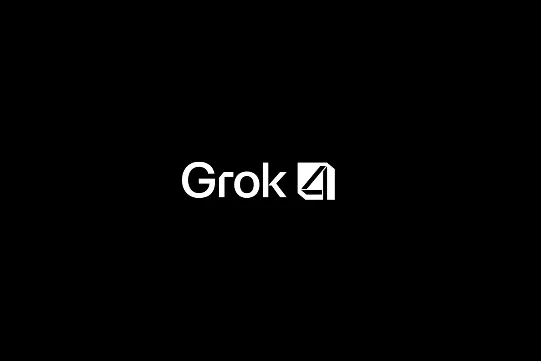Why Search (And The User) Is Still Important To SEO via @sejournal, @RyanJones
Uncover the true importance of SEO and search engines in the ever-changing digital landscape. Learn why it's crucial to adapt your strategy. The post Why Search (And The User) Is Still Important To SEO appeared first on Search Engine...

Throughout every technological change, the one constant always seems to be people calling for the death of SEO and search engines.
While pundits have been quick to call for the death of SEO, SEO itself has been all too reluctant to die. This article will look at how SEO evolves and why that makes it even more important.
Sure we could just spout some random facts about how most online purchases begin with a search and how a majority of online sessions include search – but there is a much bigger case to be made.
To fully grasp the importance of SEO and search, we first need to go back and understand both user intent (why people search) and how search engines have changed.
SEO Isn’t Dead
The “SEO is dead” articles always seem to follow a change to search that makes information easier to access for consumers. We saw it with featured snippets, we saw it with instant answers, and we’re seeing it again with AI.
We’ve also seen the “death of SEO” articles pop up around new and emerging social media sites like Meta, TikTok, X, etc – but the fact remains that overall web searches on search engines have continued to increase every year for the last decade plus.
Search isn’t dying, and new social networks or technology like AI aren’t cutting into search – they’re just making people search more. Search is becoming ingrained in (if not defining) our everyday online behavior.
While often associated, SEO is more than just building links or tricking search engines with spammy tactics. That stuff can work – temporarily – but not long-term for a real business or a brand. Sustained SEO growth needs to focus on more than keywords and tricks.
From Keywords To Intent
There’s a great quote from Bill Gates back in 2009 where he said “the future of search is verbs.”
This quote really summarizes the heart of “why” people search. People are searching to accomplish a task or do something.
It’s important that we consider this search intent when evaluating SEO and search. Not all searchers want websites. In the early days of search, links to websites were the best thing we had.
Today, however, search engines and AI are getting better at answering common questions.
For a search like [how old is taylor swift] or [when is the NHL trade deadline?] users just want an answer – without having to click over to a website, accept the cookie consent notice, close the alert popup, decline to subscribe to the newsletter, stop the auto-play video ad, and scroll past three irrelevant paragraphs to get the answer.
If creating thin ad-rich pages to answer public domain questions was your idea of SEO, then yes SEO is dead – however, SEO is much more than that now.
SEO Is Marketing
When many say search and SEO are dying, those factoid searches are the SEO they’re talking about – but there’s an entire section of search that’s thriving: The verbs!
This shift makes SEO even more important because search is no longer about the word the user typed and is all about doing actual marketing.
SEOs can help understand user intents and personas.
A good SEO professional can help you understand not only what users are searching for but “why” they’re searching – and then help marketers build something that meets the users needs.
Just as search engines have evolved, so, too, has SEO.
The days of keyword density and meta tags are gone. Search engines don’t really work like that anymore.
They’ve moved on to a semantic model that uses vectors to try to understand meaning – and marketers would do well to make the same moves by understanding their user’s intent.
Evolution Of The Consumer Journey
We typically think of the consumer journey as a funnel – but that funnel in every business school textbook doesn’t really exist. Today’s consumer journey is more like one of those crazy straws you got in a cereal box as a kid with lots of bends and loops and turns it in.
Consumers are searching more than ever across multiple devices, platforms, networks, apps, and websites. This spread-out user behavior makes having an experienced SEO pro even more important.
It’s not just about getting the right words on the page anymore, and understanding user intent isn’t enough – we also have to understand where our users are acting on each of those intents.
Technical Still Matters, Too
Despite many platforms and frameworks claiming to be SEO-friendly, technical SEO issues and opportunities still remain abundant.
Most of today’s most popular website frameworks aren’t very SEO-friendly out of the box and still require customization and tweaking to really drive results.
There still isn’t a one size fits all solution and I’m not sure there ever will be.
A good SEO will help you ensure that there aren’t confusing duplicate versions of pages, that the pages you want to be seen are all easily understood by search engines, and that your re-design or re-platform won’t hurt your existing traffic.
So Why Is Search Still Important?
Search is important because users are important.
Sure, users are going to different platforms or using apps/AI – but those things are still technically a search and we still need to make sure that they’re surfacing our brands/products.
It doesn’t matter if the user is typing into a web form, talking to a device, asking an AI, using their camera, or even talking into a smart pin – they’re still trying to “do” something – and as long as users have tasks to accomplish, SEO pros will be there to influence them.
More resources:
The Three Pillars Of SEO: Authority, Relevance, And Experience AI Has Changed How Search Works As Chatbots And AI Search Engines Converge: Key Strategies For SEO How Search Engines WorkFeatured Image: Accogliente Design/Shutterstock

 ShanonG
ShanonG 































